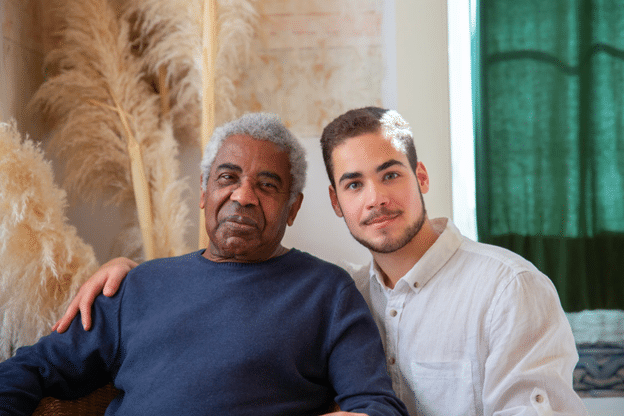
Becoming a caregiver is a deeply rewarding yet demanding role, often requiring long hours, emotional resilience, and constant attention to another’s needs. When you’re caught up in providing care, it’s easy to overlook personal well-being. But neglecting self-care can lead to burnout, stress, and declining health.
New caregivers, whether young people caring for their older people or spouses caring for their partners, must find ways to balance their responsibilities while maintaining their own physical, mental, and emotional wellness. Prioritizing self-care isn’t a luxury. It’s a necessity that enables caregivers to provide better support while sustaining their own energy and well-being.
Embracing the Power of Saying No
As a new caregiver, understanding the significance of setting boundaries is essential. You do this to safeguard your mental and physical health. By learning to say no to additional commitments that could overwhelm your emotional reserves, you must prioritize your well-being. That’s the best way to prevent burnout. Don’t let family members pile on more hours than you can realistically give. Try to consistently decline tasks that exceed your ability to do them. For instance, if you cannot lift the person you’re caring for, don’t wreck your back trying to. Talk about hiring help with the other stakeholders–siblings, health care professionals, and the like.
Enthusiasm is highest when you’re just starting out. Most people who become caregivers do so for the noblest of reasons. They want to express their love for the person who has given them love throughout their lifetime. But be realistic about what you can and cannot do. Your goal is to maintain a balanced lifestyle, ensuring you have the energy and motivation to fulfill the commitment you’ve made to the person who needs help.
Balancing Career and Caregiving with Online Education
Not all caregivers are family members. Let’s say you’re in your twenties and caring for an older person who needs a companion. Possibly, you’re a college student working in exchange for room and board or a grandchild, niece, or nephew. Whatever your circumstances, pursuing your career and educational goals doesn’t have to take a backseat. Online degree programs offer a flexible solution, allowing you to manage work, study, and caregiving responsibilities effectively. For instance, earning an IT degree online can equip you with valuable skills in information technology and cybersecurity, fields that are increasingly in demand. This enhances your career prospects for the day when your time is freed up again. If you’d like to learn more, this resource may help.
Creating a Tranquil Home
Cultivating a home environment that supports your well-being through relaxation and healthy habits is crucial. Transforming a corner of living room into a dedicated wellness space, like a cozy yoga studio or a spa-inspired bathroom, can significantly enhance your self-care routine. Incorporating elements such as natural light, indoor plants, and calming colors can amplify the sense of tranquility and rejuvenation.
Developing a mindfulness practice could be your single most important tool in keeping exhaustion and burnout at bay. Even if you’re providing care in someone else’s home, be sure to carve out some space for yourself. Even rolling out a yoga mat in a corner will allow you do some stretches.
Honoring Your Personal Interests
Prioritizing your own interests and hobbies is essential for a fulfilling life beyond your caregiving duties. Engaging in activities you love not only helps you recharge but also provides a much-needed break from the demands of caregiving, allowing you to return with renewed energy and focus. By exploring hobbies, you can better manage your mental health and preserve your identity, even when your free time is limited.
Finding a Supportive Caregiver Community
Whether you’re a paid or unpaid caregiver, the challenges of this work are immense. Maybe you’re having to pull back from your full time job to do it. Maybe you’re doing it because there’s no one else in your family who will. Whatever drew you to this role, you are not the first or only person who finds themselves performing tasks they never imagined they’d do. Joining a network of fellow caregivers is crucial for sharing resources, practical advice, and emotional support. By connecting with others who have similar experiences, you can discover strategies and insights that might not be easily accessible elsewhere. More important, you can develop deep friendships. Warmth and caring from others will recharge your batteries.
Online platforms host numerous support groups that offer solace and guidance. These virtual communities are especially beneficial for those in remote areas, providing a sense of belonging and understanding.
Cultivating a Deeper Sense of Gratitude
Incorporating gratitude into your daily routine can profoundly enhance your experience as a caregiver, fostering a more positive mindset. By focusing on the aspects of life you appreciate, whether they are small joys like a sunny day or significant events like favorable medical results, you can alleviate stress and improve your mental well-being. This practice not only boosts your mood by releasing serotonin and dopamine, hormones associated with happiness, but also enhances your physical health by lowering blood pressure and improving sleep quality.
Recognizing Your Limits to Prevent Burnout
Understanding and respecting your personal limits is essential in preventing burnout, a condition of chronic stress that can significantly affect your well-being. By setting clear boundaries and learning to say no, you can protect your mental health and maintain a manageable workload. Effectively managing tasks and achieving goals can enhance job satisfaction and motivation, reducing the likelihood of feeling overwhelmed. It’s crucial to communicate your limits to family members and even to the person you’re caring for.
Caring for someone else starts with caring for yourself. If you can make time for rest, seek support, and establish personal boundaries, you will stay strong, both physically and emotionally. By embracing self-care, you can maintain your well-being and provide the best possible support for the person you’ve promised to help.
Karen Weeks is a senior lifestyle blogger who believes nothing is off limits to seniors. After retirement, she struggled to find a new sense of purpose. She created www.Elderwellness.net – a resource for seniors who wish to keep their minds, bodies and spirits well.



